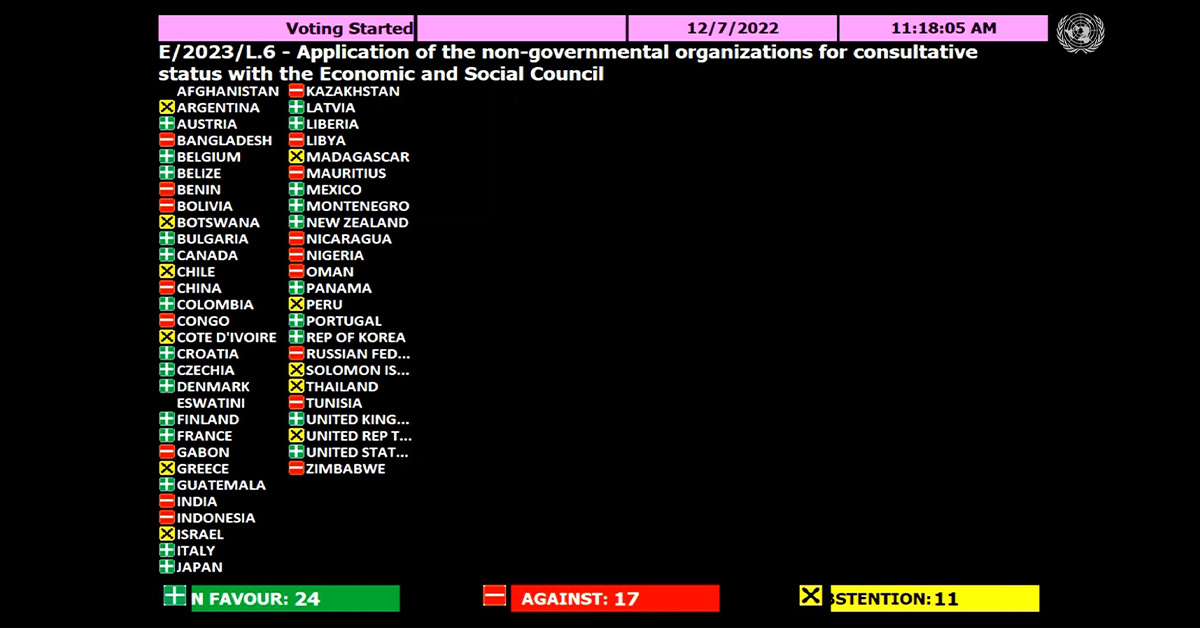On Wednesday 7 December, a majority of ECOSOC Member States voted to grant consultative status to nine non-governmental organisations seeking access to the United Nations, with 24 votes in favour, 17 votes against and 11 abstentions.
The vote overturned the recommendation of the Committee on NGOs, a subsidiary body of ECOSOC made up of 19 Member States and effectively the gatekeeper of civil society participation at the UN. Following a previous vote on the status to these same 9 NGOs at its last session in September 2022, a majority of Committee members refused to grant the groups’ request for consultative status.
This ECOSOC vote means the nine candidates now have access to the UN and can therefore offer their considerable expertise and knowledge in support of the UN’s work, including on protecting and promoting human rights. The nine groups are:
- The Gulf Centre for Human Rights
- The International Dalit Solidarity Network
- The Bahrain Center for Human Rights
- Coptic Solidarity
- The Arab-European Center of Human Rights and International Law
- The Andrey Rylkov Foundation for Health and Social Justice
- The World Union of Cossack Atamans
- Man and Law
- World Without Genocide
‘We welcome the vote by ECOSOC States which today have contributed to ensuring the presence of a vibrant and independent civil society at the UN,’ said Madeleine Sinclair, co-Director of ISHR’s New York office. ‘However, these nine organisations are only the tip of the iceberg: hundreds of legitimate groups vying for access to the UN are still being deferred unjustly. ECOSOC States must ensure the NGO Committee finally fulfils its mandate and that its members stop arbitrarily denying civil society groups access to the UN for political reasons,’ Sinclair added.
Among the nine organisations whose application for consultative status were being considered, the International Dalit Solidarity Network (IDSN) held the record for the longest deferment of an application for consultative status at the United Nations, with 15 years.
The group originally filed its application for accreditation in May 2007 and was first considered in 2008. Since then, IDSN received over a hundred written questions from the NGO Committee, many of which IDSN say were repeated questions to which the group had already provided answers. Though these questions came mostly from India, the Committee is complicit in the NGO’s long deferral, having failed to take action to stop the repetitive and arbitrary questioning.
ISHR calls on the Member States at the NGO Committee to put an end to their arbitrary deferral of legitimate NGOs seeking to contribute to UN initiatives. We also call on all UN Member States to ensure a vibrant and independent civil society continues to have meaningful unhindered access to the United Nations.
Download as PDF




